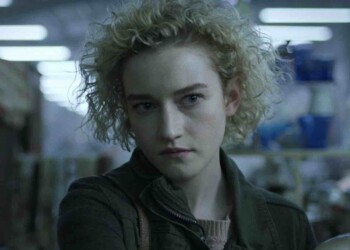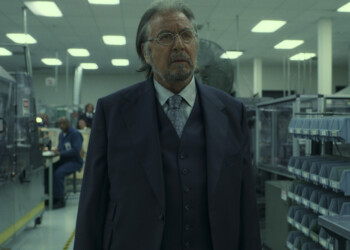By Damon Martin – Editor/Lead Writer
Follow on Twitter @DamonMartin
Before I begin this review allow me to disclose two things up front—I am the biggest fan of Joss Whedon that you’ll ever meet. I fell in love with Buffy the Vampire Slayer so many years ago, followed him right through to Angel, Dollhouse, and of course the classic series gone too soon, Firefly. He’s one of those genius writer/directors that I don’t believe can do much wrong. Second, I grew up reading William Shakespeare from high school to my English Literature major in college, he was always one of my favorites. His work MacBeth remains my favorite piece of writing that I’ve ever had the pleasure to read.
That said, going into the new film Much Ado About Nothing, I didn’t have any high expectations outside of the few comments I had seen floating around Twitter over the last few weeks. My love of Shakespeare routinely circled around his dramas, and not so much his comedy work so I’ve never actually read or seen any interpretation of this particular piece.
Let’s also be honest to say that Shakespeare’s work has been remade and adapted for centuries, with a few honorable mentions along the way, but it’s not always the easiest source material to deal with when the original is such a classic. With that, Whedon set out to create a version of this play on a minimal budget, shooting with his own cast members and friends, while using his house as the backdrop.
What resulted was one of the best trips to the cinema I’ve had in years.
Let’s start first with the story for those unfamiliar with Much Ado About Nothing (I was also learning this for the first time watching the film actually).
The film takes place in the house of Leonato (played by Avengers and upcoming Agents of S.H.I.E.L.D star Clark Gregg) as he welcomes in the conquering heroes led by his friend Don Pedro (played by Dollhouse regular Reed Diamond) and his close associates Claudio (Fran Kranz, another Dollhouse alum) and Benedick (played by Alexis Denisoff of Buffy the Vampire and Angel fame). The group is also escorting Pedro’s treacherous brother Don John (Sean Maher of Firefly notoriety) and his companions, while they all take up residence in Leonato’s house for several weeks after closing the book on a mighty battle.
There, Claudio meets Leonato’s daughter Hero (Jillian Morgese) and immediately falls in love with the young woman. He asks Don Pedro for help in convincing Leotano that he should win the hand of Hero. Meanwhile, Benedick has met his match in Leonato’s niece, Beatrice (played by the lovely Amy Acker from Dollhouse), and those two will quickly become the centerpiece to the story. Benedick is a professed lady’s man, who just sees no need for marriage, while Beatrice is a smart, snappy woman who has yet to meet her match enough to ever see a reason to take the vows. Their friends believe these two are protesting just a bit too much, and plot to find a way to bring Benedick and Beatrice together.
As for Claudio and his new lady love, they don’t get to stay happy for long because Don John is quickly plotting a scheme to use adultery to break up the couple as revenge after losing his own battle. All of the pieces are in place for a classic Shakespeare love tale with plenty of humor tossed in for good measure.
 The real genius in this adaptation comes from Whedon’s personal touches seen throughout the entire film. He draws the best performances out of his actors, and does a wonderful job orchestrating each scene like he was a conductor with every act unfolding in perfect harmony with the next. In one particular scene as Don Pedro and his cohorts are putting together a plan to connect Benedick and Beatrice, Whedon’s comedy unfolds with perfect pitch.
The real genius in this adaptation comes from Whedon’s personal touches seen throughout the entire film. He draws the best performances out of his actors, and does a wonderful job orchestrating each scene like he was a conductor with every act unfolding in perfect harmony with the next. In one particular scene as Don Pedro and his cohorts are putting together a plan to connect Benedick and Beatrice, Whedon’s comedy unfolds with perfect pitch.
With Don Pedro and his pair of friends talking loudly about how much Beatrice loves Benedick (knowing full well that Benedick is listening near by), Denisoff shines without ever saying a word. As he jumps, leaps and crashes around the outside just to stay within ear’s drop of the trio talking about Beatrice’s undying affection for him, the humor is unleashed in large doses.
The same can be said for Acker when she is caught eavesdropping on her friends as they extol the virtues of Benedick, and how he secretly loves her with all his heart. It’s these small additions that Whedon adds with quiet subtlety that really makes this film stand out in a crowd of Shakespeare remakes.
Whedon favorite Nathan Fillion (Firefly’s rough and loveable Captain) also appears as the constable Dogberry, who is in charge of enforcing the law in these parts. Dogberry wants to be Sherlock Holmes as he deduces the villain’s evil plot, but in reality he was more Barney Fife as he puffed his chest out mightily in the face of his own ineptitude. Fillion isn’t in the movie that long, but his parts are some of the best in the entire production.
Casting and writing are where Whedon always excels, but in this film where he obviously had his hand in everything from the actual production (it was filmed in his house after all) to the music (which he composed personally), this really was a love note from one big fan to bring Shakespeare into a modern age.
Much Ado About Nothing might just be the most enjoyable summer flick this year, and it’s definitely a high recommendation that anyone who fancies themselves a fan of Whedon or Shakespeare find an independent theater showing this wonderful film.






